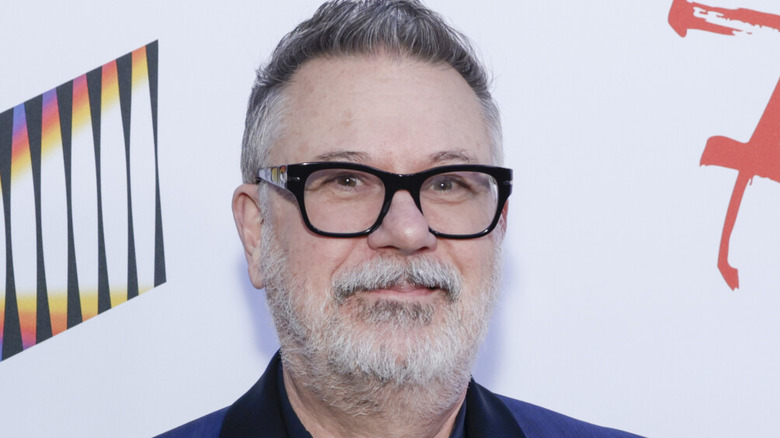An Inside Look At The Young And The Restless' 50 Years Of Production, From Script To Set
Writing for soap operas is much like an assembly line process, and is generally the same across all daytime dramas. There is the head writer who maps out the coming storylines that can cover months or even the next couple of years. The head writer then breaks the stories down into weekly, sometimes daily, synopses. Beneath that person are the breakdown writers who take the shorter plot summaries and flesh them out for each episode. Then come the scriptwriters who are given a week to take each episode and add more detailed descriptions and dialogue. "The Young and the Restless" has followed this format since its inception in 1973.
Now that it's 2023 — a mere 50 years later — many of the show's actors recently got together to celebrate "Y&R" with a star-studded Hollywood bash. As "Y&R" has been preparing to celebrate its golden jubilee, the cast previously came together in September 2022, and recurring star Greg Rikaart provided behind-the-scenes fun from the anniversary photoshoot. Along the path toward the show's milestone celebration, characters from the past will be returning and the writers will be cooking up some fun stories, many of which are coming to a head just in time for the anniversary.
Let's take a peek behind the scenes at what is involved in creating the beloved soap opera.
The writers stay true to the characters' voices
The Los Angeles Times spoke with "The Young and the Restless" executive producer and head writer Josh Griffith as well as scriptwriter Janice Ferri Esser about what goes into making each episode. Meticulous attention to details and ensuring that dialogue is true to the characters is important, as Esser pointed out, "It's where the sparkle comes in. Sometimes I make myself cry. That's how I know it's good." Most soap writers work remotely, with Esser working out of the Midwest where the fictional Genoa City is located. "The voice of 'The Young and the Restless' is very much the voice of regular people in the Midwest," she said, adding, "And I didn't want to come to Hollywood and lose that about myself."
Griffith stated, "If you're true to the characters and really play the emotional levels of what it means to them, then it transcends the soap tropes." He also noted that email and social media have made fan input far quicker these days, stating, "Now you can find out (fan opinions) by the end of the day." Griffith went on to add that, "Maintaining a level of dramatic storytelling consistent with what (series creator) Bill Bell put in place 50 years ago, and at the same time, staying relevant," is the goal. He also remarked, "This is the greatest medium that there is. There's no limit to what you can do storytelling-wise."

